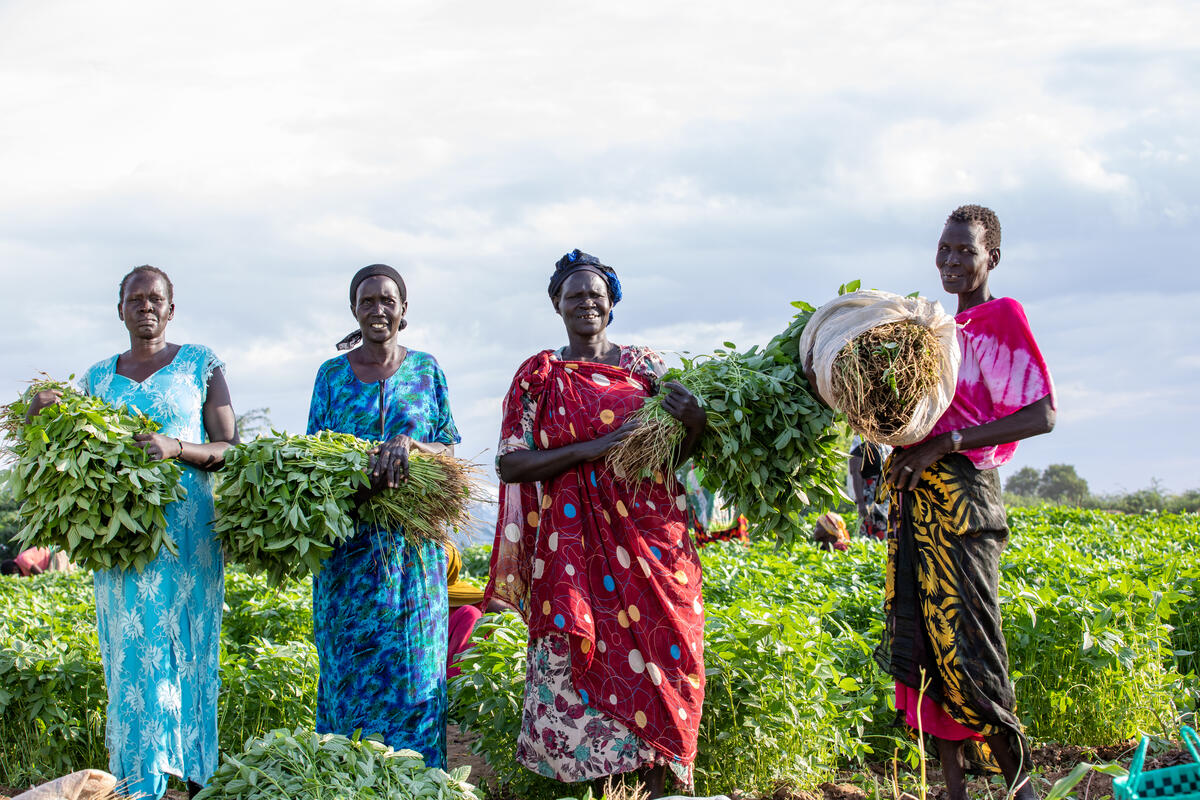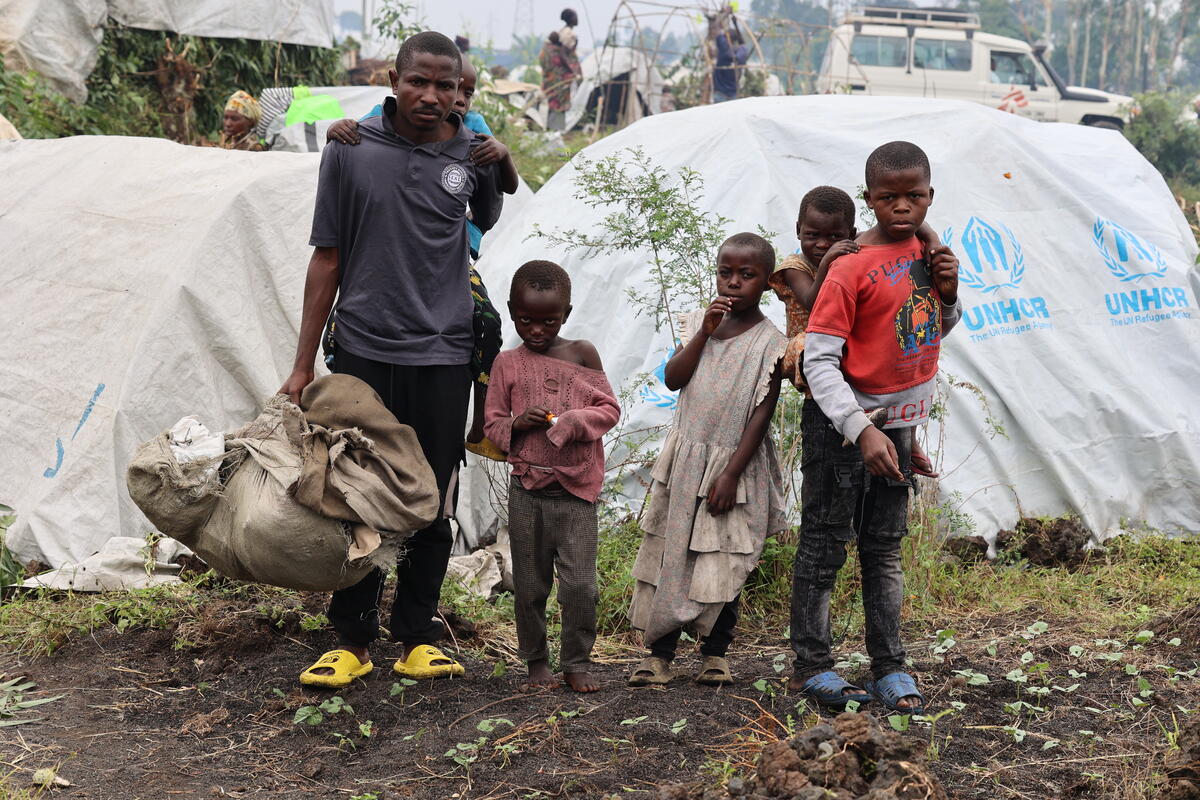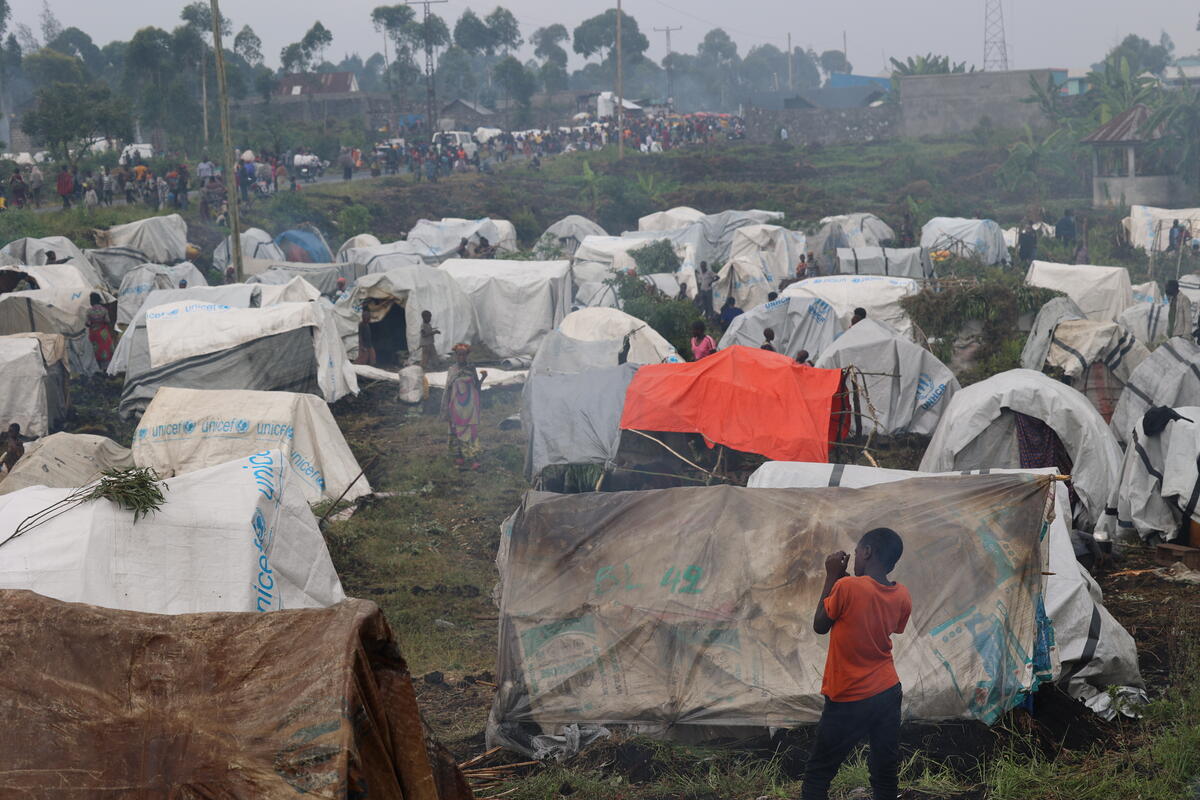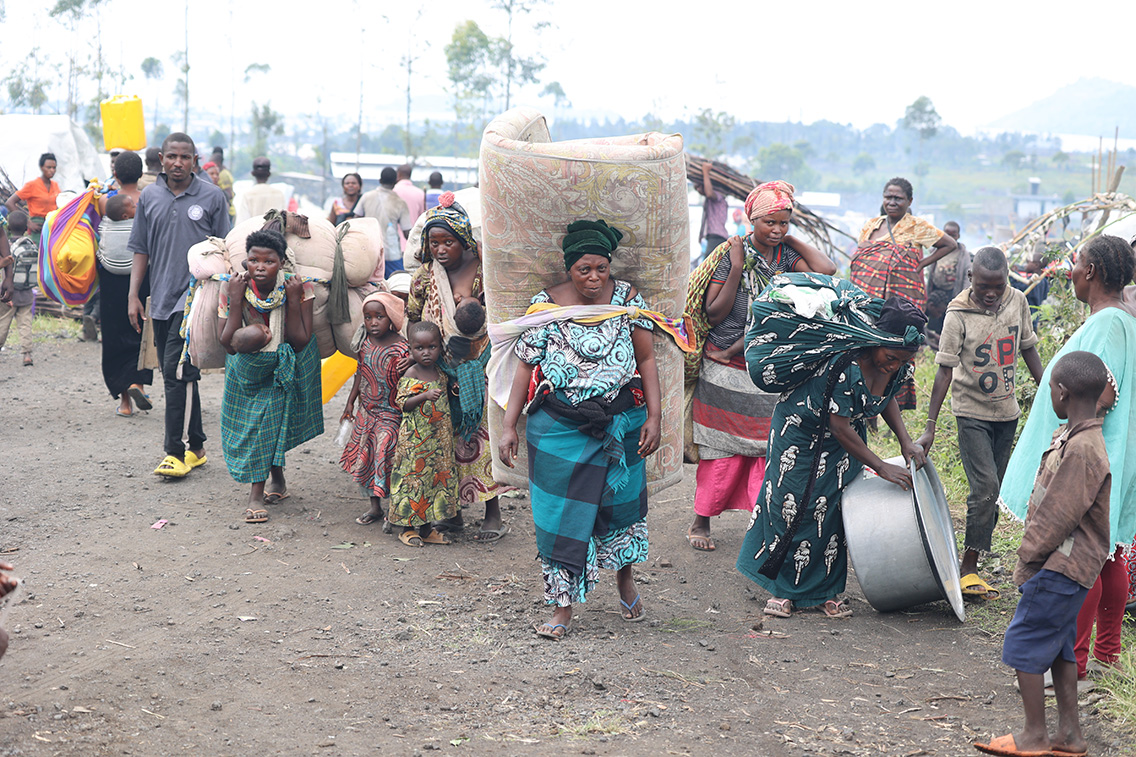Refugees return to northern Congo, but concerns remain
Refugees return to northern Congo, but concerns remain

DONGO, Democratic Republic of the Congo, December 5 (UNHCR) - Martine is understandably nervous about her decision to return home. "It has been more than three years since I left here and it will be not easy to rebuild my life," she tells UNHCR after stepping off a boat on the Democratic Republic of the Congo (DRC) side of the Oubangui River. "It worries me."
The 34-year-old later looks anxiously for a familiar face among the crowd of people waiting at a transit centre in the town of Dongo to welcome the latest returnees from across the water. She doesn't recognize anyone.
Martine and her two children had fled the other way across the Oubangui and sought refuge in Republic of the Congo, along with tens of thousands of other civilians, when inter-ethnic clashes erupted in DRC's Equateur province in 2009. The violence between the Munzaya and Enyele tribes centred on traditional fishing and farming rights and forced more than 140,000 people to flee to Republic of Congo and Central African Republic.
A further 100,000 people were displaced within Equateur but most have returned home as conditions improved. UNHCR has been involved in conflict resolution and reconciliation efforts in Equateur, including funding a new community radio station in Dongo last year. The refugee agency also supports efforts to ease the reintegration of returnees.
But those in neighbouring countries, like Martine, have been slower to return. In May this year, UNHCR launched a voluntary repatriation programme for the tens of thousands still in the Republic of Congo. By late November, more than 39,000 had returned home and the refugee agency aimed to bring home another 11,000 by years end followed by 32,000 next year.
Martine readily admits that she put off returning for a long time, "but we were told that everything is going well now." Her husband decided to remain in the Republic of the Congo because he was worried about his safety.
Still, lots of questions ran through Martine's mind. "How would I be able to get back alone with my two children to a normal life? Could I find a plot of land to cultivate? Would I be accepted in this environment?" She says many other women with children share her worries.
They include, 30-year-old Suzanne, who worries about schooling for her three children and about how her family will cope once their three months of food rations from the World Food Programme have been exhausted. The returnees also received non-food items from UNHCR. "We hope that we will not be abandoned," she says, adding that if she gets back her land: "I could farm at least and feed my family." The returnees are also given and seeds and agricultural tools by the UN Food and Agriculture Organization.
In addition to the aid package provided to each returnee family on arrival here or elsewhere in Equateur province, UNHCR and other humanitarian organizations have initiated reintegration activities, especially in the Libenge and Kungu territories where most people are coming back to.
These address some of the concerns voiced by Martine and Suzanne about shelter and education, but more needs to be done with the support of the international community.
So far, and with a limited budget, UNHCR and its partners have distributed 700 shelter kits for spontaneous returnees and have also built primary schools as well as 350 shelters and 12 wells for the most vulnerable households. Awareness campaigns aimed at ensuring peaceful co-existence between the various communities have been conducted.
Equateur is one of the most remote provinces in the country, lacking basic socio-economic mechanisms and infrastructure. UNHCR has appealed for development organizations to help strengthen the reintegration activities.
"We understand the concern of these women and of all the returnees, but at the same time we have limited resources," stressed Geert Van De Castelle, head of the UNHCR office in Dongo, while calling for more funding help.
By Simplice Kpandji in Dongo, Democratic Republic of the Congo








